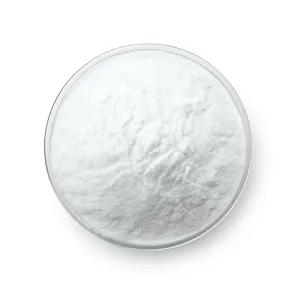-
 Precipitated Barium Sulfate 3000 Mesh for Plastics
Precipitated Barium Sulfate 3000 Mesh for Plastics -
 Sabic FJ00952 HDPE FILM
Sabic FJ00952 HDPE FILM -
 TITANIUM DIOXIDE FR-767
TITANIUM DIOXIDE FR-767 -
 P2 disposable plastic 50ml sauce bowl
P2 disposable plastic 50ml sauce bowl -
 2023 innovative products biodegradable cornstarch cutlery set Eco friendly biodegradable cutlery
2023 innovative products biodegradable cornstarch cutlery set Eco friendly biodegradable cutlery -
 High Quality Folic Acid Vitamin B9 Food Grade
High Quality Folic Acid Vitamin B9 Food Grade -
 Maida Medical Disposable medical protective gown One-piece protective gown
Maida Medical Disposable medical protective gown One-piece protective gown
Q
who makes lincoln vehicles
I'm a seasoned industrial engineer with a keen interest in machine learning. Here to share insights on latest industry trends.
GMC utilizes the Duramax diesel engine across its lineup, notably in the Sierra and Canyon trucks. The Duramax, a collaboration between General Motors and Isuzu since 2001, is lauded for its reliability, power, and fuel efficiency. There are multiple versions, including the 2.8L in the Canyon and a more robust 6.6L V8 in the Sierra HD models. These engines are designed to offer a mix of towing power and fuel efficiency that's highly valued in the full-size truck and heavy-duty markets. Over the years, Duramax engines have undergone significant technological enhancements, including advanced fuel injection systems and turbocharging, to meet stringent emissions standards while maximizing performance.
You May Like
To identify the type of engine your car has, you can start by checking the vehicle's owner's manual, which typically lists engine specifications. Another reliable method is to look for the Vehicle Identification Number (VIN), often found on the dashboard near the windshield or inside the driver's side door. The 8th character of the VIN usually indicates the engine type. You can decode the VIN using online tools or by consulting a dealer. Additionally, most engines have an identification tag or engraving on the engine block that states the engine model. For more precise details like engine size, configuration, and power output, manufacturer websites or contacting authorized dealerships are useful resources. Always ensure to gather information from official and reputable sources for accuracy.
No, electric vehicles (EVs) are generally better for the environment than traditional gas-powered cars.
1. Emission-free: EVs produce zero tailpipe emissions, reducing the amount of carbon dioxide and other pollutants released into the atmosphere.
2. Energy efficiency: Electric vehicles are 4-5 times more energy efficient than petrol/diesel cars. They convert a higher percentage of the electrical energy from the grid to power at the wheels.
3. Renewable energy integration: If charged from renewable sources like wind or solar power, emissions can be even lower.
4. Decrease dependency on fossil fuels: As electric cars run on electricity, they reduce the dependence on fossil fuels, leading to a decrease in greenhouse gas emissions.
However, there are two main environmental concerns related with EVs:
1. Battery production: Manufacturing the lithium-ion batteries commonly used in EVs can have a substantial environmental impact. The process is energy-intensive and involves the mining of rare earth metals, which can be damaging to local environments.
2. Electricity source: If the electricity used to charge EVs comes from coal-fired power plants, the overall environmental impact is higher, as burning coal for electricity produces large amounts of CO2 emissions.
Overall, the environmental impact of EVs is largely dependent on how the electricity they use is generated. As the energy grid becomes more sustainably focused, the benefits of electric vehicles will increase. Furthermore, innovation is leading to more sustainable battery options which are set to lessen the environmental impact of their production.
1. Emission-free: EVs produce zero tailpipe emissions, reducing the amount of carbon dioxide and other pollutants released into the atmosphere.
2. Energy efficiency: Electric vehicles are 4-5 times more energy efficient than petrol/diesel cars. They convert a higher percentage of the electrical energy from the grid to power at the wheels.
3. Renewable energy integration: If charged from renewable sources like wind or solar power, emissions can be even lower.
4. Decrease dependency on fossil fuels: As electric cars run on electricity, they reduce the dependence on fossil fuels, leading to a decrease in greenhouse gas emissions.
However, there are two main environmental concerns related with EVs:
1. Battery production: Manufacturing the lithium-ion batteries commonly used in EVs can have a substantial environmental impact. The process is energy-intensive and involves the mining of rare earth metals, which can be damaging to local environments.
2. Electricity source: If the electricity used to charge EVs comes from coal-fired power plants, the overall environmental impact is higher, as burning coal for electricity produces large amounts of CO2 emissions.
Overall, the environmental impact of EVs is largely dependent on how the electricity they use is generated. As the energy grid becomes more sustainably focused, the benefits of electric vehicles will increase. Furthermore, innovation is leading to more sustainable battery options which are set to lessen the environmental impact of their production.
Run-flat tyres, designed to maintain vehicle mobility even after a puncture, typically come at a premium compared to standard tyres. Their prices vary based on brand, size, and type but generally range from $150 to $500 per tyre. Factors influencing cost include the tyre's technology level, the vehicle make and model they are intended for, and performance characteristics. For instance, run-flats for high-performance or luxury vehicles tend to be on the higher end of the price spectrum. While more expensive initially, run-flat tyres can offer cost savings in terms of reducing the need for immediate roadside tyre changes or towing. However, they may have a shorter lifespan than regular tyres and can sometimes offer a firmer ride, which are important considerations for potential buyers.
You May Like
Q&A
- •how to turn titanium ore into bars
- •does fiber help diarrhea
- •is frisbee made out of low density polyethylene
- •difference between olefin and polypropylene
- •what is titanium tetrachloride
Popular Information
- •Global Investors Meet: Karnataka government signed pacts worth Rs 1.6 lakh crore
- •Delisted Chemplast Sanmar files papers for Rs 3,500 crore IPO
- •Aditya Birla Chemicals Q1 Net up 40% to Rs 20.36 crore
- •Stock recommendations: Buy Gujarat Fluorochemicals, target price Rs 3356: ICICI Securities
- •Grasim Industries Q3 profit up 14%, shares jump 4%











